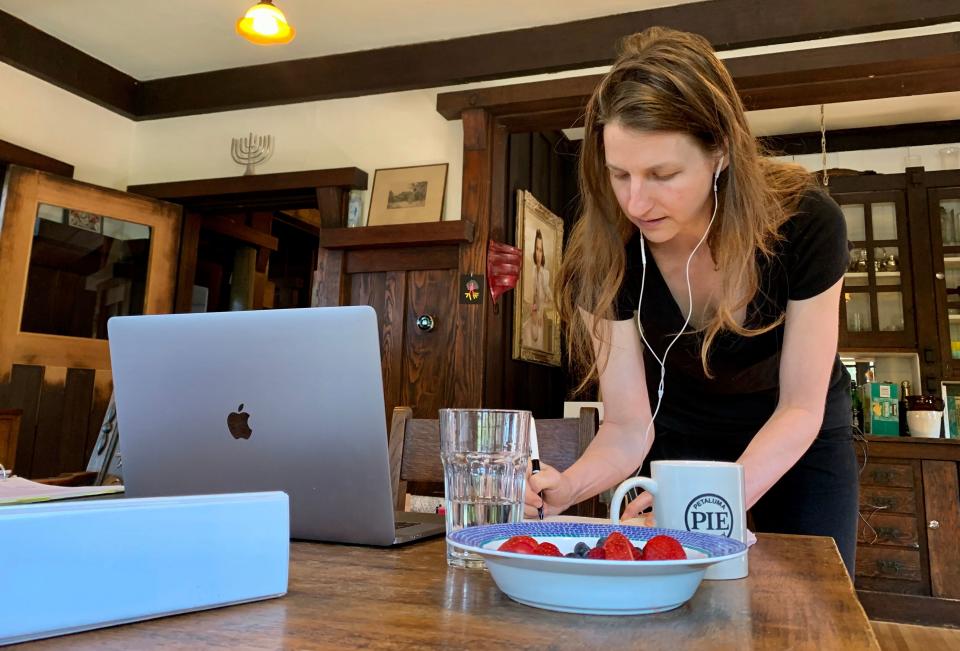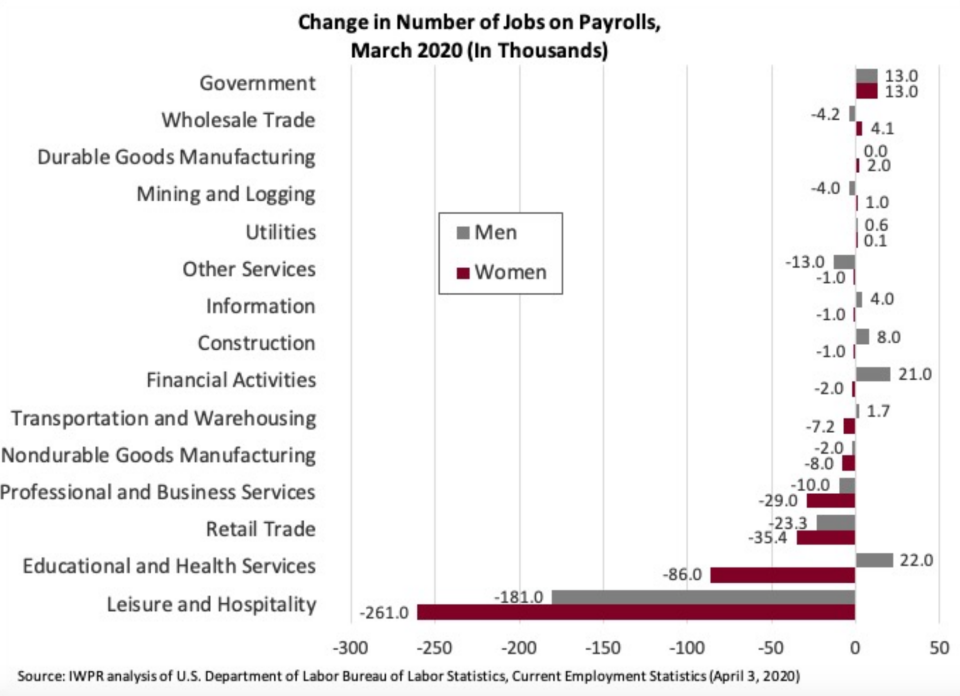Krawcheck: 'I'm very concerned' about how women emerge from the coronavirus pandemic
While there are numerous aspects of the economic shock spurred by the coronavirus pandemic, Ellevest CEO Sallie Krawcheck is particularly worried with how working women emerge from the pandemic.
“I am so worried about women going into and coming out of this,” she recently said on Yahoo Finance’s The First Trade (video above). “Let’s start with … the gender pay gap, which is so frustrating — $0.82 to a man’s dollar, much worse for women of color, closing very slowly. The gender wealth gap is $0.32 to a man’s dollar and then moving in the wrong direction.”

The gender pay gap isn’t projected to close until the year 2093. And for women of color, the disparity is even more prevalent. While white women currently earn $0.81 for every dollar a white man makes, American Indian, Alaska Native, Black, and Hispanic women make just $0.75 for every dollar.
Women are ‘a lot of the essential workers’
One out of three jobs held by women has been deemed essential amid the coronavirus pandemic, according to the New York Times, which found that nonwhite women are more likely to be doing essential jobs than any other racial group.

“As we all go to shelter in place, women are not as able to go to shelter in place, because they’re more in hospitality industries, a lot of the essential workers,” Krawcheck said. “They’ve been losing their jobs at a greater rate than men are because of the industries that have been hard hit.”
Furthermore, of the 700,000 people who were laid off in March, nearly 60% were women.
“Across the board, women went into this in worse shape, and they’re getting hit to a greater degree even if they’re able to shelter at home,” Krawcheck said. “So I’m very concerned about the shape that women come out of this in.”

Adriana is a reporter and editor for Yahoo Finance. Follow her on Twitter @adrianambells.
READ MORE:
'Structural inequalities': These areas of America are particularly vulnerable to coronavirus
Coronavirus: Health care workers face stress that's 'in many ways equal' to combat
Follow Yahoo Finance on Twitter, Facebook, Instagram, Flipboard, SmartNews, LinkedIn, YouTube, and reddit.

 money
money 
